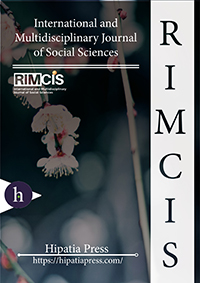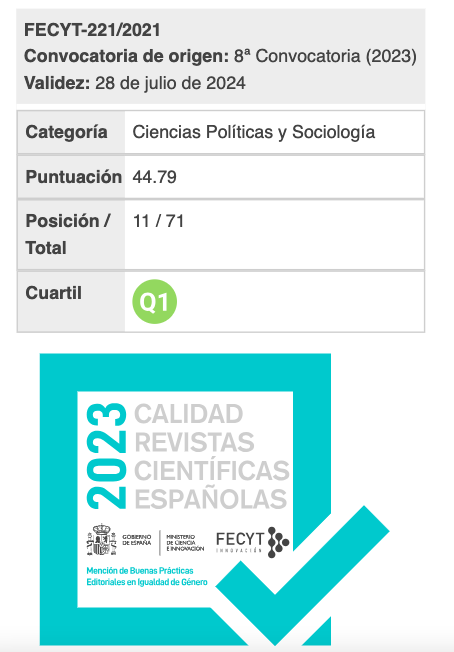Trust Building in the Promotion of Peace and Intercultural Dialogue among Adolescents in International Summer Camps
Keywords:
Downloads
Abstract
This article aims to offer both a theoretical contribution and examples of practices of trust building in peace education. The analysis regards international summer camps established in Italy. Each camp is attended by four delegations of ten adolescents coming from different countries; aiming to promote adolescents’ ability in conflict resolution, peaceful relationships and intercultural dialogue.
In analysing interactions, we follow the basic methodology of Conversation Analysis, which consists in working on naturally occurring interactions and more specifically on the contribution of single turns or actions to the ongoing sequence, with reference to the context. The analysis concerns the design of turns (actions) produced in the interaction and the organization of the sequences in which educators’ and adolescents’ turns are intertwined. We aim to understand if and in which ways education is effective in enabling adolescents to communicate, creating conditions of trust and trusting commitment, mutual humanization, and mutual recognition of needs.
Our data exemplifies two different ways of promoting trust and communication: 1) the educator coordinates the direct interactions between adolescents, who cooperate in constructing a joint narrative; 2) the educator acts as a mediator of contacts among adolescents, promoting their alternate participation in the interaction in triadic exchanges.Downloads
References
Bar-Tal, D. (2002). The elusive nature of peace education. In by G.Salomon, B.Nevo (Eds.), Peace education: The concepts, principles, and practices around the world (pp.27-36). Mahwah, NJ: Lawrence Erlbaum.
Google Scholar CrossrefBaraldi, C. (Ed.). (2009). Dialogue in intercultural communities. From an educational point of view. Amsterdam: John Benjamins.
Google Scholar CrossrefBaraldi, C., Iervese, V. (2010). Dialogic Mediation in Conflict Resolution Education. Conflict Resolution Quarterly, 27(4), 423-445.
Google Scholar CrossrefBritzman, D. (2007). Teacher education as uneven development: toward a psychology of uncertainty. International Journal of Leadership in Education, 10 (1), 1-12
Google Scholar CrossrefBrown, L. (2009). International education: a force for peace and cross‐cultural understanding?. Journal of Peace Education, 6 (2), 209-224.
Google Scholar CrossrefBuber, M. (1923/2004). I and Thou. New York: Continuum
Google Scholar CrossrefDahl, T. (2009). The importance of place for learning about peace: residential summer camps as transformative thinking spaces. Journal of Peace Education 6 (2), 225-245.
Google Scholar CrossrefDanesh, H.B. (2006). Towards an integrative theory of peace education. Journal of Peace Education 3(1), 55–78.
Google Scholar CrossrefGaltung, J. (1975). Peace: Research. Education. Action. Essays in peace research, Vol. 1. Copenhagen: Christian Ejlers.
Google Scholar CrossrefGardner, R. (2001). When listeners talk: response tokens and listeners stance. Amsterdam: John Benjamins.
Google Scholar CrossrefGiddens, A. (1990). The consequences of modernity. Cambridge: Polity Press.
Google Scholar CrossrefGiddens, A. (1991). Modernity and self-identity. Self and society in the late modern age. Cambridge: Polity Press.
Google Scholar CrossrefGoleman, D. (1995). Emotional Intelligence. New York: Bantam Books
Google Scholar CrossrefHarber, C., Sakade, N. (2009). Schooling for violence and peace: how does peace education differ from ‘normal’ schooling?. Journal of Peace Education 6 (2), 171-187.
Google Scholar CrossrefHarris, M.I. (2002). Conceptual underpinnings of peace education. In G.Salomon, B.Nevo (Eds.), Peace education: The concepts, principles, and practices around the world (pp.15-26). Mahwah, NJ: Lawrence Erlbaum.
Google Scholar CrossrefHarris, M.I. (2004). Peace education theory. Journal of Peace Education 1(1), 5–20.
Google Scholar CrossrefHarris, M.I., Morrison, M.L. (2003). Peace education. 2nd edition. London: McFarland
Google Scholar CrossrefHengst, H., Zeiher, H. (Eds,). (2005). Kindheit soziologisch. Wiesbaden: VS Verlag für Sozialwissenschaften.
Google Scholar CrossrefHeritage, J. (1985). Analysing news interviews: Aspects of the production of talk for an overhearing audience. In T.Van Dijk (Ed.), Handbook of discourse analysis, Vol. 3. Discourse and dialogue, edited (pp.95-117). London: Academic Press.
Google Scholar CrossrefHeritage, J., Robinson, G. (2005). The terms of agreement: Indexing epistemic authority and subordination in talk-in-interaction. Social Psychology Quarterly 68(1), 15-38.
Google Scholar CrossrefHicks, D. (Ed.). (1996). Discourse, learning, and schooling, Cambridge: Cambridge University Press.
Google Scholar CrossrefHill, M., Davis, J., Prout, A. & Tisdall, K. (2004). Moving the Participation Agenda Forward. Children & Society 18(2), 77-96.
Google Scholar CrossrefHoldsworth, R. (2004). Taking Young People Seriously Means Giving Them Serious Things to Do. In J.Mason, T.Fattore (Eds.), Children Taken Seriously. In Theory, Policy and Practice (pp.139-150). London: Jessica Kingsley Publishers.
Google Scholar CrossrefHolland, S., O’Neill, S. (2006). We Had to be there to make Sure it Was What We Wanted. Enabling Children’s Participation in Family Decision-making through the Family group Conference. Childhood, 13 (1), 91-111.
Google Scholar CrossrefHutchby, I., Wooffitt, R. (1998). Conversation Analysis. Cambridge: Polity Press.
Google Scholar CrossrefHutchby, I. (2007). The discourse of child counseling, Amsterdam: John Benjamins.
Google Scholar CrossrefJames,A., Jenks, C. & Prout, A. (1998). Theorizing Childhood. Oxford: Polity Press.
Google Scholar CrossrefJames, W. (1899/1983). Talks to teachers in psychology and to students on some of life’s ideals. Cambridge: Harward University Press
Google Scholar CrossrefJenks, C. (1996). Childhood. London: Routledge.
Google Scholar CrossrefKelman, H. (2005). Building trust among enemies: The central challenge for international conflict resolution. International Journal of Intercultural Relations 29, 639-650.
Google Scholar CrossrefLawy, R., Biesta, G. (2006). Citizenship-as-practice: the educational implications of an inclusive and relational understanding of citizenship. British Journal of Educational Studies, 54 (1), 34-50.
Google Scholar CrossrefLuhmann, N. (1968). Vertrauen. Ein mechanismus der reduktion sozialer komplexität, Stuttgart: Enke.
Google Scholar CrossrefLuhmann, N. (1984). Soziale Systeme. Frankfurt a.M.: Suhrkamp.
Google Scholar CrossrefLuhmann, N. (1988). Familiarity, Confidence, Trust: Problems and Alternatives. In D. Gambetta (Ed.), Trust: Making and Breaking Cooperative Relations (pp.94-107). Oxford: Department of Sociology University of Oxford.
Google Scholar CrossrefLuhmann, N. (1991). Soziologie des Risikos. Berlin: De Gruyter.
Google Scholar CrossrefLuhmann, N. (1997). Die Gesellschaft der gesellschaft. Frankfurt a.M.: Suhrkamp.
Google Scholar CrossrefLuhmann, N., Schorr, K.E. (1979). Reflexionsprobleme im Erziehungssysteme. Frankfurt a.M.: Suhrkamp.
Google Scholar CrossrefMatthews, H. (2003). Children and Regeneration: Setting and Agenda for Community Participation and Integration. Children & Society 17, 264-276.
Google Scholar CrossrefMehan, H. (1979). Learning lessons. Cambridge, Massachusetts: Harvard University Press.
Google Scholar CrossrefMerton, R.K. (1936). The Unanticipated Consequences of Purposive Social Action. American Sociological Review, 1, 894-904.
Google Scholar CrossrefParsons, T. (1959). The School Class as a Social System: Some of Its Functions in American Society. Harvard Educational Review, 29, 297-318.
Google Scholar CrossrefPearce, W.B. (1989). Communication and the Human Condition. Carbondale: Southern Illinois University Press
Google Scholar CrossrefPortes, A. (2000). The Hidden Abode: Sociology As Analysis Of The Unexpected. American Sociological Review, 65, 1-18
Google Scholar CrossrefShapiro, S. (2002). Toward a critical pedagogy of peace education. In G.Salomon, B.Nevo (Eds.), Peace education: The concepts, principles, and practices around the world (pp.63-72). Mahwah, NJ: Lawrence Erlbaum.
Google Scholar CrossrefShier, H. (2001). Pathways to Participation: Openings, Opportunities and Obligations. Children & Society, 15, 107-117.
Google Scholar CrossrefWalsh, S. (2011). Exploring Classroom Discourse. Language in Action. London: Routledge.
Google Scholar CrossrefWyness, M.G. (1999). Childhood, Agency and Education Reform. Childhood 6 (3), 353-368.
Google Scholar CrossrefDownloads
Published
Almetric
Dimensions
How to Cite
Issue
Section
License
All articles are published under Creative Commons copyright (CC BY). Authors hold the copyright and retain publishing rights without restrictions, but authors allow anyone to download, reuse, reprint, modify, distribute, and/or copy articles as the original source is cited.















